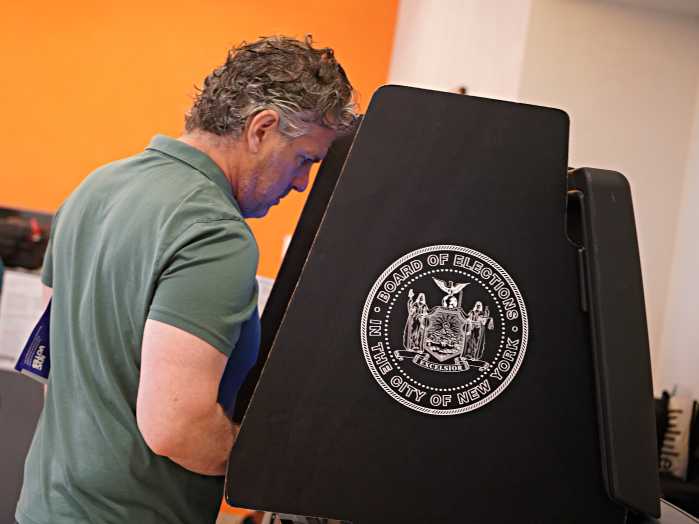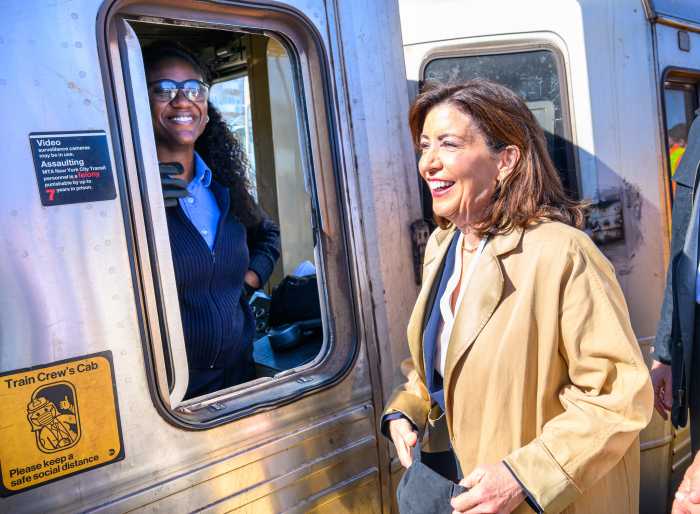I’m not a conservative, or an alt-righter. I find Donald Trump repugnant. But over the last couple of weeks, I’ve become a campus pariah to some (and a hero, perhaps, to a few) in my nontenured NYU faculty job, thanks to the humorless, Social Justice Warrior-brand of campus culture run amok and a misunderstanding about a Twitter account. Enmeshed in a conspiracy – thinly disguised as sympathy – of my colleagues’ design, I’ve lost my academic freedom and I potentially stand to lose my appointment.
Last month, NYU’s senior vice president of student affairs, Marc Wais, sent an email to the campus community to announce that an on-campus appearance by right-wing Internet provocateur Milo Yiannopoulos had been canceled by the administration. I believe universities should debate bad ideas, not ban them, and I vocally opposed this development.
Around the same time, I created a Twitter account, @antipcnyuprof, complete with Nietzsche avatar and “Deplorable” screen name, as a thought experiment. It allowed me to tweet in the guise of an alt-righter while drawing out the predictable, censorious responses of so-called progressives, self-appointed thought police at NYU and elsewhere who have, in the name of maintaining a culture of civility on campus, policed their little corner of the Twittersphere. Beyond NYU, we just marked a Halloween where, with almost comic predictability, the politically correct campus thought police, like some dystopian pre-crime bureau, have prompted students to report on peers for wearing offensive Halloween attire.
We’ve reached a point where anything can be taken out of context and labeled injurious: At a University of Kansas dorm, an RA advised against incorporating an image of Harambe, the gorilla, into a jungle-themed floor decoration because it was a “triggering” “masculine image.” As Erika Christakis (harangued for her own attempts last year to bring some sanity to Yale’s debate over Halloween costumes), eloquently explains, “certain ideas are too dangerous” to talk about on campus. In other words, we’ve reached a point where students, faculty and administrators alike are increasingly inclined to suppress the free flow of ideas – the discourse that is a university’s very reason for being.
In recent semesters, I and other NYU faculty have been encouraged to structure class discussions as safe spaces. This fall, that encouragement veered toward coercion when the university implemented a bias reporting hotline, by which students can anonymously report professors and classmates for any number of viewpoint transgressions related to race, gender and orientation, real or perceived, in the course of academic discussion. And it was suggested that the bias line phone number and email address be added to all syllabi. Which would help turn every classroom encounter into a potential infraction and figures students as Soviet-style monitors of ideological conformity. I refused.
And to do my part to push back, I’ve spoken out. I posted an article on Facebook (without comment), about a University of Michigan student who, when offered his choice of pronouns by which the university would officially identify him – including gender-neutral “ze” – cleverly chose “His Majesty” as a way of sending up the absurdity of the exercise. My post was meant only to upend the politically correct conventional wisdom, and have a laugh at the university administration. But it was met with fierce backlash from a number of transgender individuals, then (perhaps no longer) among my friends, as totally beyond the pale.
I also created the Twitter account. My aim was to expose the ferocity with which noncomplying views expressed on social media by an anonymous academic would be attacked. And I was proved right. There was no attempt at constructive dialogue, offering of rational counterargument or even acknowledgment of the possibility of the existence of a legitimate point of view outside of progressive orthodoxy. It showed that this debate isn’t about promoting an environment of inclusivity and diversity, but about punishing transgressors. I welcome rebuttals – particularly from anyone who took exception to my Facebook post. But I take issue with the implication that I personally harmed or betrayed anyone simply by posting a controversial news item.
The whole episode makes me reluctantly agree with Trump’s assertion that political correctness “has transformed our institutions of higher education from ones that fostered spirited debate to a place of extreme censorship.”
I threw in the picture of Nietzsche because if he were alive today and on the campus circuit, surely his bookings would be regularly canceled due to his belief in the Übermensch. No matter what you think of Nietzsche, such an abridgment would represent a cultural and historical impoverishment. But that message seemed to be lost on many of my colleagues.
The result was an outcry from a few students and others, on campus; an inquiry by a student reporter that finally drew me out; and then my interview in the student newspaper. The “Q&A with a Deplorable NYU Professor” drew a public response from my colleagues, writing under the Orwellian appellation, “Liberal Studies Diversity, Equity and Inclusion Working Group,” and drawing this Orwellian conclusion:
“We fully support Professor Rectenwald’s right to speak his mind and we welcome civil discourse on the issues that concern him. But as long as he airs his views with so little appeal to evidence and civility, we must find him guilty of illogic and incivility in a community that predicates its work in great part on rational thought and the civil exchange of ideas. The cause of Professor Rectenwald’s guilt is certainly not, in our view, his identity as a cis, white, straight male. The cause of his guilt is the content and structure of his thinking.”
Thanks?
Two days after the interview and the same day as the response, I was summoned by my dean, via email, to meet that afternoon. I accepted, and when we spoke in person, to my surprise, he stated (for my ears only) that the meeting had nothing to do with the interview or the Twitter account. Rather, he said (after a representative of NYU human resources joined our conversation), certain unidentified members of the staff or faculty had expressed concern for my well-being. Suffice it to say that I was strongly encouraged to take a paid leave of absence and that, according to the administration, it had nothing to do with my recent media posture. That’s not exactly how I see it.
Are my silence and conformity worth so much to the administration that they’re willing to pay me to take a timeout, rather than engage on this topic? Don’t get me wrong, I’ll take a break and cash the checks. But I didn’t present this challenge to the campus community because I wanted a paid vacation. As an academic, I’m invested in the free exchange of ideas, and I can’t sit by while we drift further and further toward intellectual confinement.
And I won’t let students take all the heat. Any number of articles blame millennials for being sensitive, coddled and illiberal. But they’ve been enabled by faculty and staff who know better, but see political correctness as a means of asserting administrative control.
Especially in my program, faculty, while mostly full-time and having the modicum of security that long-term, endlessly renewable contracts afford, are especially vulnerable to administrative desiderata. And our administrators have numerous mechanisms for “observing” us, including course evaluations, but also intermittent “peer observations” and a massive cadre of advisers to whom students can issue complaints about anything.
Meanwhile, in terms of overthrowing oppression, such mechanisms will do nothing. They will fail because they attempt to reduce racism, sexism, homophobia, transphobia and other forms of oppression to a matter of attitudes and moral aberrations. Simultaneously, they obscure the structural bases of such forms of oppression and the ways they’re reproduced systemically by the social order – including in universities, which also take punitive measures against those aberrant individuals. But addressing racism isn’t merely about correcting the deviant ideas of individuals. Once discovered, outed and punished, academia absolves itself of responsibility, having done its part in combating oppression; case closed.
That’s no way to fight oppression.
Rectenwald is an assistant clinical professor of Liberal Studies at New York University.




































